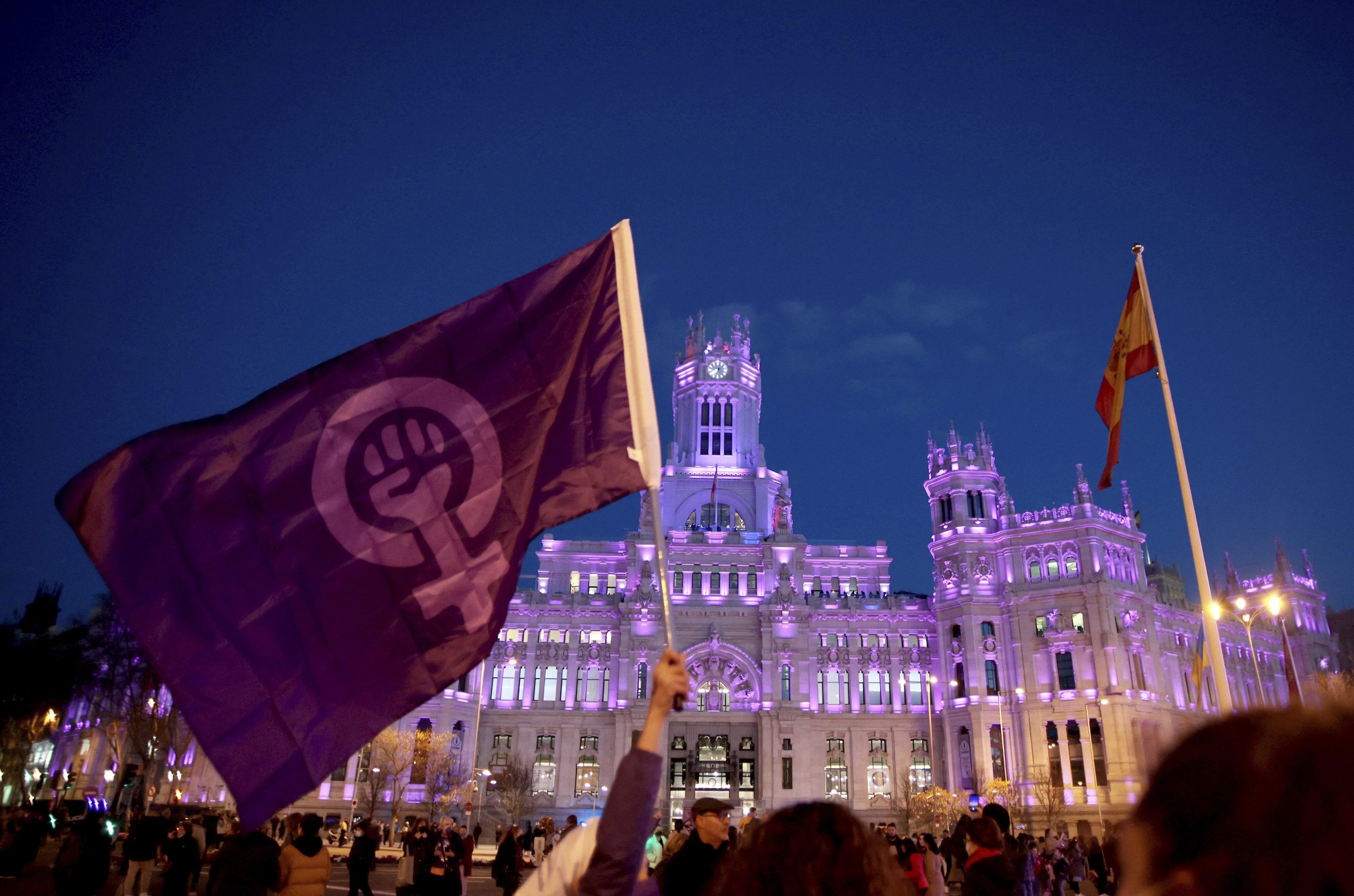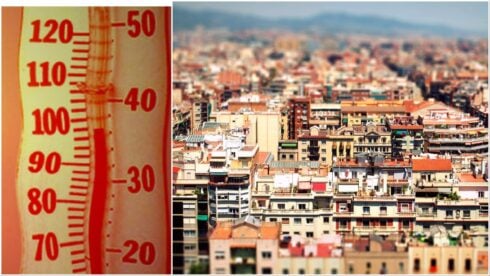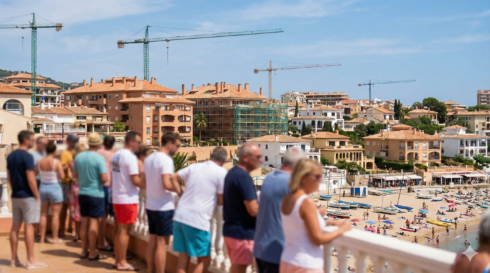FOR THE first time, in 2022 there were two separate marches in Spain for International Women’s Day. This year the scene will be repeated, but there are more tensions than ever – not just among the feminist movement itself, but also within the coalition government. And it is policies from the Equality Ministry that are at the root of the problem.
The 8-M marches, as they are known in Spain, arrive this year with relations between the governing Socialist Party (PSOE) and junior coalition partner Unidas Podemos close to breaking point.
The latest incident came on Tuesday, when lawmakers in the Congress of Deputies voted in favour of the Socialists’ proposal to reform the so-called ‘only yes means yes’ consent law.
But they did so without having reached agreement with Unidas Podemos, and with the support of right-wing parties such as the main opposition Popular Party (PP) and the abstention of far-right Vox.
The consent law was drafted by the Equality Ministry, which is run by Unidas Podemos and headed up by minister Irene Montero. The aim of the legislation was to put consent at the heart of sexual assault cases, but it had the unexpected consequence of seeing convicted sex offenders released from jail early due to changes in sentencing guidelines.
Unidas Podemos has refused to consider changes to the law, prompting the Socialists to move ahead with reforms unilaterally, something that has outraged the junior coalition partner.
What’s more, Spain’s new Trans Law has also strained relations – not just between the coalition partners, but also among the Socialist Party itself. In particular, the elements that allow for minors to change their sex and name on official documents were seen as a step too far in some quarters of the party.
With local and regional elections due in May, and a general election slated for the end of this year, the coalition between the Socialists and Unidas Podemos is looking increasingly unsteady.
For further evidence of the split, Pedro Sanchez was pictured today with 10 of his ministers – seven of them women – for the occasion of Women’s Day. None of them were from Unidas Podemos. He also failed to attend the institutional event organised every year for 8-M by the Equality Ministry.
At that event, Equality Minister Irene Montero was berated by a group of young feminists who criticised the ministry’s policies, and of ‘erasing us as women’.
As for the marches due to take place on Wednesday evening, the Madrid Feminist Movement will be keeping separate from the main crowd. It is taking a hard line on prostitution, calling for its total abolition, as well as opposing Spain’s new ‘Trans law’, which, it argues, ‘erases women’.
It also opposes the consent law, is calling for Equality Minister Irene Montero to quit, as well as for Prime Minister Pedro Sanchez to take the ultimate responsibility for her policies.
This harder line is in contrast to the demands of the 8-M Commission, which heads up the main march in the Spanish capital. It is against sexual exploitation and sex trafficking, but counts sex workers among its ranks. What’s more, it has incorporated the LGBTQ+ agenda into its own.
Despite the divisions, the two sides still have many demands in common: an end to gender violence, an end to poverty for women, and the defence of the public health system.
Read more:
- 8M in Malaga: Demonstrations and rallies for Women’s Day in Spain’s Malaga
- Fear of coronavirus responsible for low turnout at 8-M Women’s Rights rally, according to Spain’s Equality Minister Irene Montero
Click here to read more Spain News from The Olive Press.








